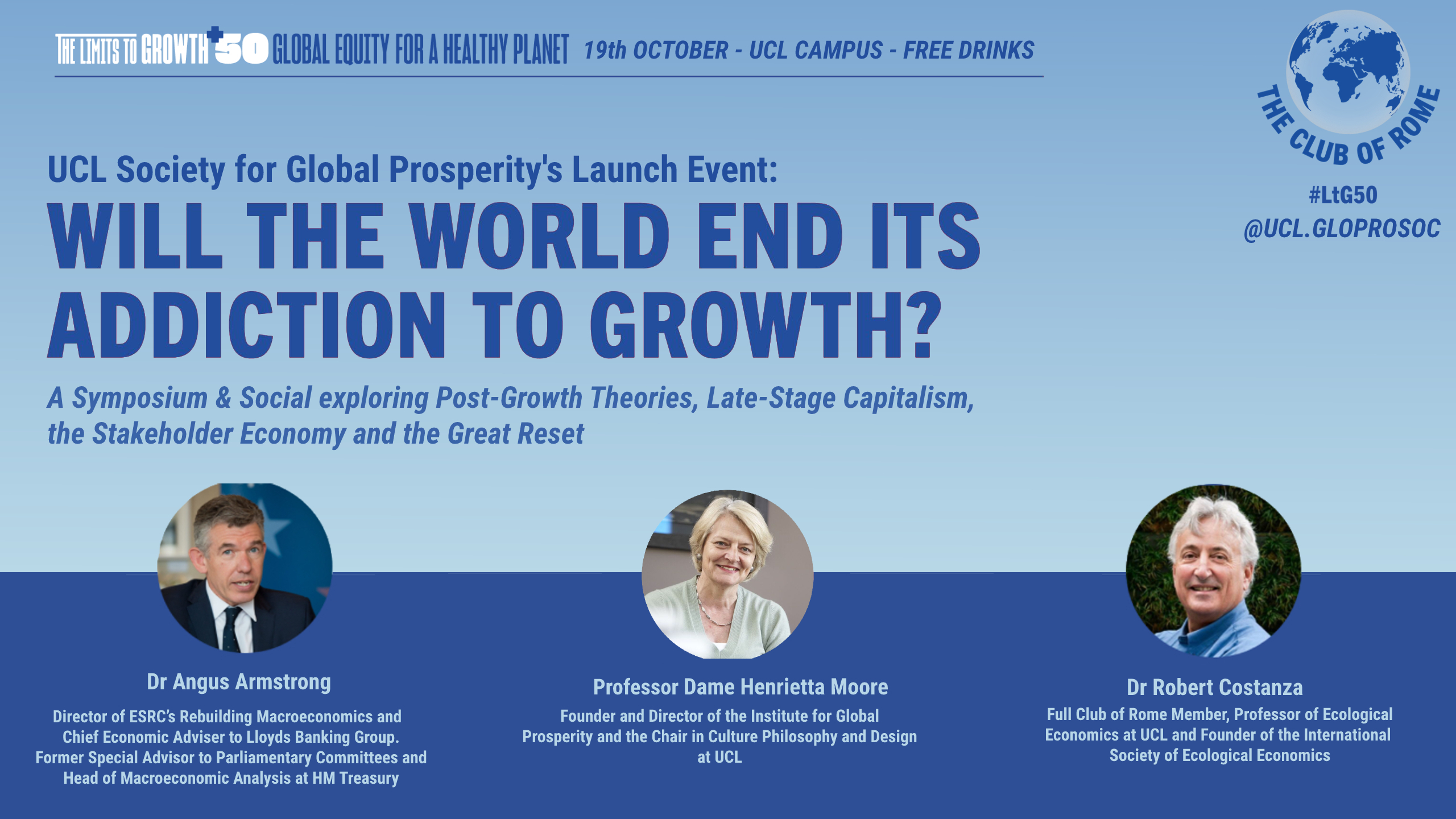William Fletcher
18 October 2022
In May this year, the Economist published an article describing ‘sustainability’ as one of ‘the woolliest words in business’; writing that it is ‘so fuzzy’ that it is ‘at the point of being useless’.i
This comes fifty years since ‘Limits to Growth’ report made it crystal clear that the natural world cannot support the way the global socio-economic system produces and consumes. This Club of Rome commissioned project led by MIT researchers used systems modelling to show that humanity’s reliance on self-sustaining, exponential growth would cause an ecological collapse before 2100.ii
And yet here we are, half a century later and “sustainability” has less credibility than before, with a media corporation, that has a reach of over 30 million people, labelling it “useless”.
We know that we are in the Anthropocene. We know the natural world has limits.
But to the average 21st Century person, these are inconvenient truths that allude to a future in which we must make sacrifices and impose limits on our lives; and to the small businesses and big corporations, any idea of de-growth just sounds ridiculous. Money just simply will not flow into de-growth ideas; it just seems so counter-intuitive to our idea of economics.
That is because the ideology-driven global economic system makes us to think that infinite economic growth on a finite planet is not only possible, but ideal. And despite evidence showing that our production/consumption addiction worsens global inequality and is parasitically sucking the environments, ecosystems and biogeochemical systems dry, business-as-usual ensues. Even when the (seemingly independent) crises of COVID-19, resource-centric warfare and rising energy prices are in front of our noses, only a minority connect the dots and show that it is this business-as-usual - ‘always more’ - approach that is driving us to environmental collapse is also killing us physiologically, culturally and socio-economically. iii
We either realise that all human health and wealth comes from the ecosystems that we are killing, and voluntarily impose limits on our consumption, or we will keep being thrown into pandemics, resource-centric warfare and worsening inequality that impose limits on our consumption whether we like it or not.
But it is not that simple. Despite the work of the Club of Rome, the UN, etc. pushing eco-centric policy incentives, the future is still unknown. Because we do not fully understand the interdependent systems of society and nature, we still do not have clear goals and metrics for success. And without a comprehensive idea of development, can we really blame people who prefer the ease of quantitative growth and see ‘sustainability’ as vague and woolly?
If you only have a direction and do not actually know where you are going, there’s a good chance you’re not going to like where you end up.
This is the predicament of mankind that is the focus of the UCL Society for Global Prosperity. As the representative society of the Institute for Global Prosperity, the society seeks to build a community of changemakers that are passionate about leaving the global socio-economic system better than they found it.
With a diverse range of disruptive thinkers, the Society is organising various events, from external speaker events & panel talks to collaborative change-campaigns with like-minded organisations, in attempt to spread awareness for humanity’s need to reconceive and redesign the socio-economic mechanisms exploiting people and the planet in the name of exponential growth.
Society for Global Prosperity’s Launch Event
The Society’s launch event is on the 19th of October on Wednesday, 19th October in Room 347, SSEES Building, Taviton Street, WC1H 0BW.

The symposium will explore the trends the ‘Limit to Growth’ report analysed fifty years ago and re-examine its conclusions in light of contemporary approaches and debates in order to identify how we can attempt to create a clear socio-economic framework for thriving within the limits of Planet Earth.
Professor Henrietta Moore (DBE) the Chair of Culture Philosophy and Design at UCL and the founding-Director of the Bartlett Institute for Global Prosperity and will start off the event with a presentation on the need for us to change the way we conceive and run our economies. This will then be followed by a panel discussion between Dr Angus Armstrong the Director of ESRC’s Rebuilding Macroeconomics network, Chief Economic Adviser to Lloyds Banking Group and former Head of Macroeconomic Analysis at HM Treasury and Dr Robert Constanza a Club of Rome member, Professor of Ecological Economics at UCL and Founder of the International Society of Ecological Economics.
How to attend:
1. Purchase Society Membership (This gives free admission to all of the Society’s events) https://lnkd.in/edgHFDXZ
2. Find the event on the UCL Student’s Union ‘What’s on Calendar’ and get a ticket. https://lnkd.in/enY_kmPg
3. That’s it - it’s that easy!
William Fletcher is the Founding President of the UCL Society for Global Prosperity and a 3rd year student (BA History, Philosophy & Economics). As the representative society of the Institute for Global Prosperity (IGP), the Society for Global Prosperity seeks to build a community of changemakers that are passionate about leaving the global socio-economic system better than they found it. For more information, please see here.
i https://www.economist.com/busi...
ii https://www.clubofrome.org/pub...
iii https://themeteor.org/2019/12/...
Fatemeh Sadeghi
30 May 2024 Feminists in the Global South have stepped out of the conventional territories of ‘women’s matters’ into more fund...